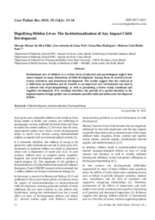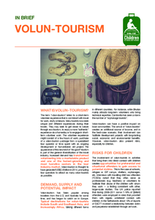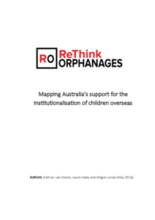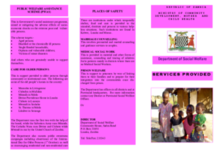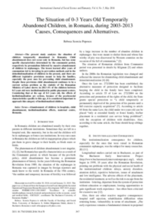Displaying 961 - 970 of 1482
This country care review includes the care-related Concluding Observations adopted by the Committee on the Rights of Persons with Disabilities.
The results of this study suggest that the removal of a child from an institution and its transfer to an improved care environment can lead to a reduced risk of psychopathology, as well as promoting a better social, emotional and cognitive development.
Using the DFID sustainable livelihood approach, this qualitative study evaluated the social capital being accessed by adolescent girls transitioning from two institutions in Harare, Zimbabwe.
This country care review includes the care-related Concluding Observations adopted by the Committee on the Rights of Persons with Disabilities.
This brief from ECPAT's Global Study on Sexual Exploitation of Children in Travel and Tourism defines the term "voluntourism" and its risks to children, with a focus on orphanage voluntourism.
This study was aimed to identify adjustment problems of adolescents residing in an orphanage in Kerala, India, as well as to find out the association between adjustment problems of adolescents residing at orphanage with their socio-demographic variables.
This report “seeks to map Australia’s contribution to residential care institutions for children overseas across a number of sectors and identify opportunities for strategic engagement with various stakeholders in the Australian context.”
The purpose of this assessment was to review service delivery in centres for children with disabilities in Rwanda. This report establishes relevant baseline information on institutional capacity including services offered, staffing levels and other parameters regarding care of children with disabilities.
This brochure outlines the Public Welfare Assistance Scheme, including services related to inspection of child-care facilities and adoption.
This study used a secondary analysis of data from 2003 to 2013 to better understand the situation of children temporarily abandoned in Romania. It looked at data for children aged 0-3 years who were abandoned in different hospital units or institutionalized in public orphanages or public and private foster care institutions.


